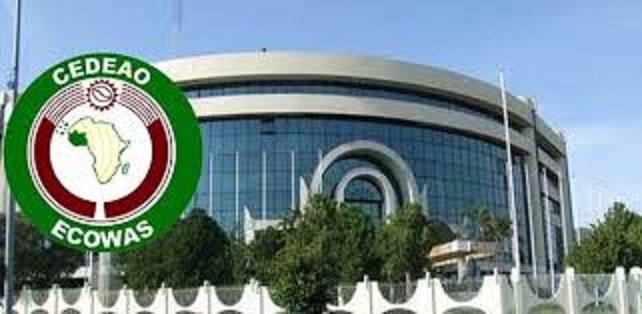Abuja, Feb. 29, 2024: The President of ECOWAS Commission, Dr Omar Toure, says the sub-regional bloc has achieved the aims and objectives for which it was formed by its founding fathers 49 years ago.
Toure made this known at a news conference on Wednesday, in Abuja to commence a weekly media engagement aimed at giving maximum publicity to ECOWAS activities going forward.
He expressed confidence that the new initiative would fast-track the dissemination of information and facilitate the media’s critical role as partners in the ECOWAS project, and breach observed gaps.
Toure noted that ECOWAS’ major success story was that over the last 49 years, it had been able to unite its 15 member states around its common objectives of socio-economic development through regional integration.
He said: “As captured in Article 3 of the ECOWAS Revised Treaty, Member States have committed themselves to the promotion of integration, leading to the establishment of an economic Union in West Africa in order to raise the standard of living of its peoples.
“And, to maintain and enhance economic stability, foster relations among the Member States and contribute to the progress and development of the African continent.”
According to him, substantive progress has been made in the pursuit of the aims and objectives of establishing ECOWAS on May 27, 1975, touching all facets of the institution’s projects and programmes.
These, he said, included the rights of community citizens to reside and establish businesses within the Community, infrastructure development, harmonization of socio-economic and financial policies, promotion of peace, security and stability.
He enumerated these to include trade and free movement; infrastructure; energy, peace, security, democracy and justice; health; food security and fragility.
The president said that under free trade and movement, ECOWAS succeeded in creating a single market for members’ businesses under its ECOWAS Trade Liberalisation Scheme that was introduced in 1979.
“This immediately made the trade in unprocessed goods, traditional handicrafts free of any restrictions, tariffs, quotas and any encumbrances.
“The ECOWAS scheme means that food items, grains and animals produced within ECOWAS can be sold and consumed anywhere in the Community.
“In addition, manufactured goods in the region, which have a specified percentage of local content, can be traded freely within the Community without tariff, quota, and other forms of obstacles,” he said.
Toure said that in order to ease cross-border crossing, ECOWAS has been implementing joint border posts in the Community, which bring together border officials of two neighboring countries to carry out joint operations to ease crossing frontiers by traders and transporters.
“We have built this joint border between Nigeria and Benin at the Seme-Krake border and between Togo and Ghana at Noepe-Akanu border. Thanks to the financial support of the European Union, these borders posts are now operational.
“There is also another border post that has been made operational between Nigeria and Cameroon, at the Ekok-Mfun border, which was financed by the African Development Bank,” he said.
In terms of infrastructure, the President disclosed that ECOWAS established regional infrastructure policies and regulations for the physical integration of ECOWAS Member States, such as regional highways, railways and airways projects, and maritime transportation plans.
“The Abidjan-Lagos corridor is one of the biggest and busiest economic corridors in Africa. We are developing this highway and extending it to connect Abidjan and Praia via The Gambia, Guinea Bissau, Guinea, Sierra Leone, and Liberia,” he said.
Toure disclosed that ECOWAS had also engaged in major programmes in the energy sector, where a regional energy market was being developed under the West African Power Pool, which has enabled the sale and purchase of electricity among members.
“To support this market, regional electricity regulations have been developed and electricity projects interconnecting Member States are being implemented. Some have been completed linking Benin, Ghana, Cote d’Ivoire, Guinea, Liberia, Sierra Leone and Togo,” he said.
The ECOWAS President noted that a cardinal success story of ECOWAS was its accomplishments in the promotion of regional peace, security and stability, especially through the ECOMOG peace-keeping interventions in Liberia and Sierra Leone.
“In the same vein, ECOWAS is also spending considerable resources on fighting terrorism in the region, while a major intervention is ongoing on maritime security,” he said.
In terms of food security and fragility, the Commission’s President said that progress had been recorded in other areas, including the establishment of a regional Stabilization Fund in the Gambia and Guinea Bissau, to address fragility in the sub-region.
“In the agriculture sector, there are numerous coordinated interventions, such as the ECOWAS Rice Offensive, which seeks to reduce the region’s dependence on importation of rice,” he said.
The Commission’s President said that ECOWAS has also made giant strides in the health sector, prominent among which was the establishment of the West African Health Organisation (WAHO), a specialized institution to handle health issues in the region.




